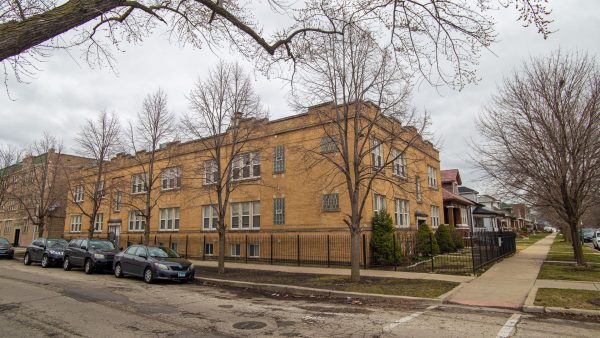Over the last month, much of the regular work we engage in has had to adapt to the changing circumstances and needs. This is also true for community partners in our network.
To better understand the needs and work underway in communities across the city, we’ve been having conversations with our partners to learn more about their current efforts.
While the work we’re highlighting isn’t directly about transportation, we feel it’s essential to shine a spotlight on the crucial work happening in community-based organizations around the city at this time.
Julio Rodriguez, Director of Community Development at the Northwest Side Housing Center in Belmont-Cragin, says that adapting to the changing needs has been key for his organization.
“We’re trying our best to be responsive to everything and anything. Before this, I had no idea how you file for unemployment. I had to learn it, so I can help residents apply for it.”
Rodriguez says that a core part of his time has been checking in with folks and asking them what they need, in addition to facilitating all the different resources. Organizations like Belmont-Cragin United have been elevating and spurring sales for local businesses and there is also a Belmont-Cragin Mutual Aid Network.
“We work with older adults, parent mentors, homeowners, renters, and youth. The people affected the most have been older adults and parents,” he says. “In some cases, we’ve gone and bought people their medication. We can’t do that at scale, but in this situation, we have to.”
Zair Menjivar, a member of the Belmont-Cragin Youth Leadership Council, says that his family has been preoccupied with taking care of his dad who recently fell sick.
Menjivar says he has stayed inside during shelter in place, though he doesn’t always know if everyone sees the severity of the moment.
“A lot of friends want to go back to school — they don’t have a lot to do,” he added.
Rodriguez says that the impact COVID-19 is having on youth is important to recognize.
“We’re trying to do as much as we can. The youth are in this holding pattern. Some folks are disappointed because of graduation.”
Coupled with that, Rodriguez says, is the added roles parents have had to take on as children stay home. Parents are home all day with the kids and are now also teachers.
“Mental health has to be addressed,” Rodriguez emphasizes. “For our parents, a lot of their spouses are undocumented. They don’t qualify for unemployment. They don’t really have savings. They’re concerned about their immigration status.”
Eva Nip, community organizer at the Coalition for a Better Chinese American Community, says that work at her organization has also adapted.
Current efforts are focused on helping people complete the Census, in addition to connecting people with resources. They recently launched a COVID-19 hotline.
Nip says that she has been trying to figure out how to reach older folks when they are not connected on social media. Phone-banking has been one strategy.
“It is strengthening in helping to understand what informal communication looks like,” she says.
One concern has been the number of senior buildings in Chinatown and figuring out how to make sure residents are safe, in addition to having culturally-relevant food delivered to them.
“A lot of people have had to pivot in figuring out how to best serve our community in a safe way.”
Photo of a block in Belmont Cragin courtesy of Google.

